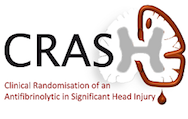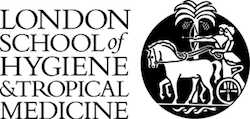About The Trial
Worldwide, over 10 million people are killed or hospitalised because of traumatic brain injury (TBI) each year. Approximately 90% of deaths from TBI occur in low and middle income countries. TBI predominantly affects young adults and many patients experience long lasting or permanent disability. The social and economic burden of TBI is considerable. With rapidly increasing motorisation, the incidence of TBI is predicted to rise in low and middle income countries. An effective, widely practicable and affordable treatment for TBI could save many thousands of lives and could substantially reduce the burden of disability.
The Aim
The CRASH-3 trial will provide reliable evidence about the effect of tranexamic acid on mortality and disability in patients with TBI. The effect of TXA on the risk of vascular occlusive events and seizures will also be assessed.
The Intervention
Systemic antifibrinolytic drugs, including tranexamic acid, are widely used in surgery to prevent clot breakdown (fibrinolysis) and thus reduce surgical blood loss. Currently there is insufficient reliable evidence to assess the effectiveness of tranexamic acid traumatic brain injury. This trial would provide a reliable basis for recommending whether or not tranexamic acid should be administered to patients with TBI.
The Trial
The CRASH-3 trial is a large, international, randomised, placebo controlled trial, to quantify the safety and effect on mortality and morbidity of the administration of tranexamic acid in patients with TBI. Adults with TBI, who are within eight hours of injury**, with any intracranial bleeding on CT scan or who have a GCS of 12 or less, and have no significant extra-cranial haemorrhage, are eligible for inclusion, except those for whom antifibrinolytic agents are thought to be clearly indicated or clearly contra-indicated. Treatment will be allocated randomly and numbered drug /placebo packs will be available in participating hospitals. The primary outcome will be death in hospital within 28 days of injury (cause of death will be described). Outcomes will be assessed at death, discharge or 28 days after randomisation, whichever occurs first.
If a simple and widely practicable treatment, such as tranexamic acid, was shown to improve outcomes in patients with traumatic brain injury, then it could be used in high, middle and low income countries, saving many thousands of lives and reducing the burden of disability.
**ONLY PATIENTS WITHIN 3 HOURS OF INJURY TO BE RECRUITED FROM 10 NOVEMBER, 2015.
An important scientific objective of the CRASH-3 trial is an analysis of the effect of tranexamic acid stratified by time to treatment (≤1 hour, >1 to ≤3 hours,> 3 to ≤8 hours). As of 10/11/2015, we completed recruitment in subgroup >3 to ≤8 hours. As of this date, only patients within THREE hours of injury can be recruited.
For more information please read: Why reducing time to treatment is criticial
Please also view our Time is Brain video. Dr Antonio Belli from Queen Elizabeth Hospital, Birmingham tells us why it is important to randomise as soon as possible after injury.
CRASH 3 Trial - Time Is Brain by ctu-it
David Yeo describes a personal experience of TBI and the need to randomise as soon as possible after injury.
Protocol
Summary
Training Presentations
Conducting the trial at your hospital
Why reducing time to treatment is critical
Maintaining your Investigator Site file
Giving information and obtaining informed consent
Randomising an eligible patient
Managing and administering the trial treatment
How to complete the outcome form
The trial in numbers


12,731 patients recruited


28 recruiting countries



